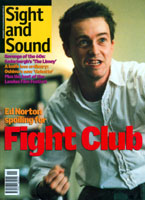Primary navigation

USA 1998
Reviewed by Geoffrey Macnab
Our synopses give away the plot in full, including surprise twists.
London, 1912. Arthur Winslow's daughter Catherine, an ardent suffragette, becomes engaged to a young soldier, John Watherstone. The family celebrate. Arthur discovers his youngest son Ronnie is back home early from naval college. Ronnie is carrying a letter which explains he has been expelled for stealing a postal order. Arthur asks him if he is guilty, and Ronnie insists he is not. Arthur resolves to fight to clear Ronnie's name.
Many months pass. An independent inquiry is called but Ronnie is not represented and is again found guilty. The family suffer financially. Arthur's health is broken. His oldest son Dickie is forced to leave university without completing his studies. Arthur hires brilliant attorney and politician Sir Robert Morton to represent Ronnie. After prolonged debate in the House of Lords, Sir Robert succeeds in bringing the case to court. Catherine, initially suspicious of Sir Robert, learns that he has made his own sacrifices to prove Ronnie's innocence. Embarrassed about the publicity the Winslow case is generating and aware that Arthur can no longer provide a dowry, John breaks off his engagement to Catherine. Arthur learns that the case is won. Sir Robert drops by to offer his congratulations. Catherine shows him out of the house.
When Mike Figgis adapted The Browning Version in 1994 he updated Terence Rattigan's original play to the present. David Mamet resists such tampering in his surprisingly faithful adaptation of Rattigan's The Winslow Boy (first filmed by Anthony Asquith in 1948). The drama remains firmly rooted in the Edwardian era. Apart from a few outside excursions, we rarely venture from the Winslows' home. At times the domesticity can become claustrophobic. Characters are invariably shot in medium close-up and Mamet doesn't skimp on the period detail. Everything - from little Ronnie's naval-cadet costume and Arthur's whiskers to Catherine's starched blouses and the dark, heavy furnishings which (along with Benoît Delhomme's cinematography) make the Winslow drawing room seem so sombre - is as fussily rendered as in any Merchant-Ivory E. M. Forster adaptation.
Given the multiple deceptions of Mamet's last film The Spanish Prisoner, audiences are likely to approach The Winslow Boy with suspicion. Early on, the very air of normality in the Winslow household puts us on our guard. With its euphemisms, irony and understatement, the language used by the family and their associates isn't so far removed from the sly vernacular found in Mamet's own work. There are even moments when the characters echo one another's sentences, Mamet-style. ("You don't behave as if you were in love," the mother Grace tells her daughter Catherine. "How does one behave as if one is in love?" she replies.) Rebecca Pidgeon plays Catherine in precisely the same coquettish way as she did the siren who led Campbell Scott astray in The Spanish Prisoner. We wonder when Mamet will pull the carpet from beneath us, but there is no sinister subtext here. Mamet, who describes The Winslow Boy as "one of the most immaculately crafted plays I've read," was loath to tinker with its structure. He has edited, compressed, and even written new speeches for some characters, but they're barely detectable.
The pleasures of his version of The Winslow Boy are predictable ones. This is a consummately crafted costume drama galvanised by a handful of excellent, if very stagy, performances. Nigel Hawthorne's Arthur starts off as a robust Edwardian patriarch, but as the film progresses his beard whitens and his health deteriorates. Hawthorne brings an unlikely tragic grandeur to the character, conveying in scowls and mutters Arthur's extreme stubbornness as well as his uncertainty.
The fact that neither he nor anybody else betrays any emotion serves, if anything, to heighten the pathos. The characters all speak in coded language and treat one another with exaggerated courtesy. Sir Robert seems incapable of expressing his interest in Catherine in any other way than by paying her anodyne compliments about her hat. The solicitor Desmond proposes to her as if he's a bailiff delivering a summons. For all their polish and wit, both come across as forlorn and lonely figures.
Mamet claims that the themes of The Winslow Boy are universal, but he seems as fascinated by the nuances of English society as by any abstract ideas about justice, rights and victimhood Rattigan's text may illustrate. The drama is set at a very specific moment - on the eve of World War I. As Mamet clearly realised, if he had taken away the historical context his film would have lost the sense of time and place which make the original play so distinct.